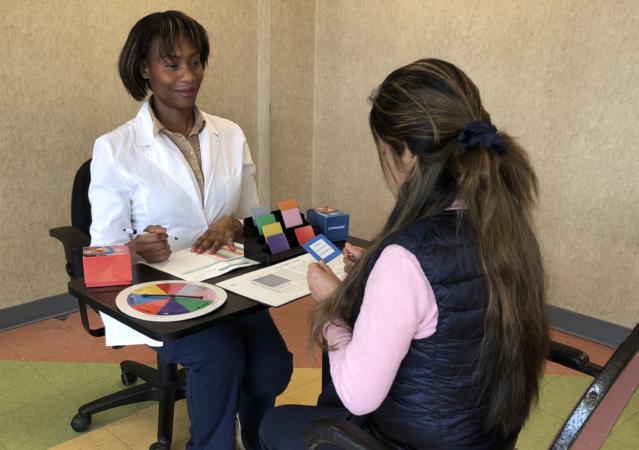As a nationally certified speech pathologist, Ayana Webb has spent more than 15 years working with patients who have been afflicted by traumatic brain injury, stroke, multiple sclerosis or Parkinson’s disease. In 2016, her desire to help patients achieve better health outcomes made her see work in a different light. Becoming an entrepreneur was one way to help the patients who needed it most.
Data from the National Center for Injury Prevention and Control indicates that “5.3 million individuals are living with a TBI-related disability in the United States.” Many, like Webb’s patients, suffer from aphasia, a condition that prohibits them from using language to communicate. The condition causes once-vibrant executives, artists, and deans to end up “at the lowest point in their lives.” Webb attributes the depression to the fact that those who lack the ability to communicate are generally dismissed by society.
“Patients fail to receive ‘social respect,’ because they cannot speak. Everyone deserves respect,” Webb said.
Webb wanted to create a product to fix that. When “Jane,” a traumatic brain injury patient, faced early discharge due to insurance termination, Webb developed a speech tool for Jane’s home use. To Webb’s delight, family members reported that Jane was achieving communication goals that had not been possible since the injury. Equally important, Jane’s depression was lifting.
Jane now had a glimmer of hope, and so did Webb. Encouraged by feedback from colleagues and clinicians who used the tool and reported results, Webb entered her creation in a contest for women entrepreneurs. After winning first place and receiving business accelerator training, she launched her product, WordStim, in 2018.
Realizing that technology could help increase the number of patients with access to WordStim, Webb worked with developers to create a secure online clinician portal. This vital gateway connects clinicians and speech pathologists, assisting them in their use of the speech tool and providing treatment support and insight. The portal also records patient scores and translates them into meaningful data.
Webb plans to use these data points to partner with research organizations to develop customized treatment options for aphasia patients and to make assistance more accessible, since “access enables patients to reach for opportunity.” As she educates healthcare facilities about WordStim, Webb emphasizes the importance of ensuring that those most in need know that they matter.
Thinking back to the patient who inspired her, Webb recalls the palpable impact of societal dismissal on Jane’s self-worth.
“Social viability is essential for success. All of us have a basic, human need for recognition and respect that cannot go unmet,” Webb said.
As Webb expands her business, she will continue to help others reach for opportunity. By changing health outcomes and promoting self-worth, this entrepreneur is speaking up for those in need — until they are empowered to speak for themselves.

